





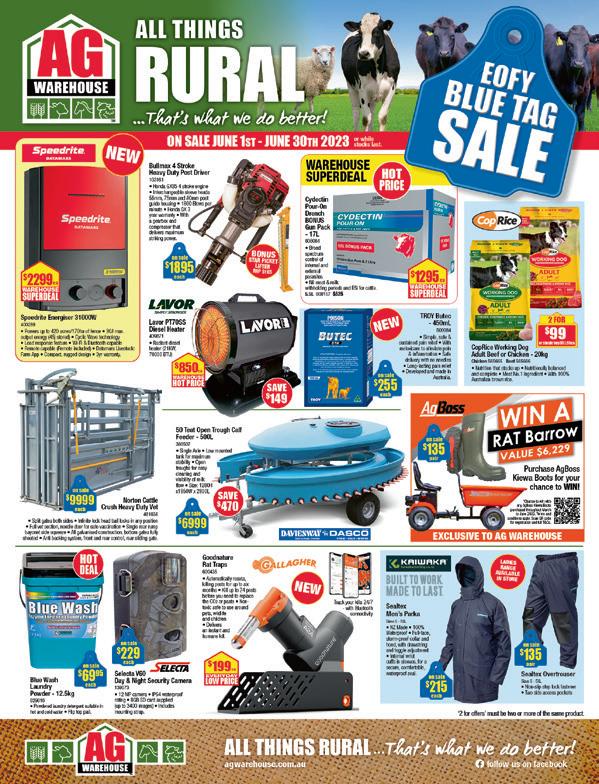
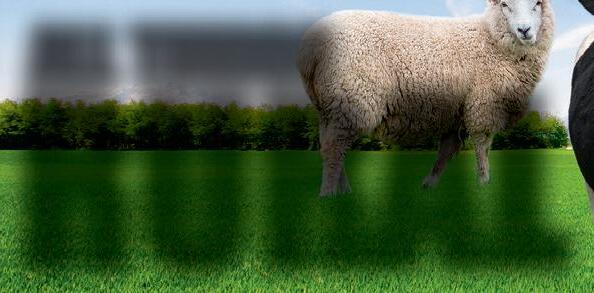






























GIPPSLAND REGION JUNE, 2023 ISSUE 152 TIME’S RIGHT TO STEP BACK At the end of June, after 41 years in the industry, James Dillon will wash down the dairy for the last time. More, page 4 ALL THINGS RURAL ...That’s what we do better! Fuel available at these stores. VICTORIA & NSW STORE LOCATIONS - TRADING HOURS MON-FRI 8AM-5PM SAT 9AM -12PM. Times may vary - contact store.
Bega Cobram Cohuna
Colac Corryong Dumbalk
Eskdale Finley Foster
Heywood Kiewa Koroit
Korumburra Leongatha Maffra
Numurkah Orbost Rochester
Simpson Swan Hill Wangaratta ALL THINGS RURAL VISIT OUR WEBSITE agwarehouse.com.au
Warragul Wonthaggi Yarram BLUE TAG EOFY SALE 12 PAGES OF EOFY SAVINGS! CATALOGUE OUT NOW
BY LAUREN FINGER
AS AUTUMN comes to a close, the fire is lit and the days are getting shorter.
It’s been lovely to have a real proper autumn break, something we haven’t seen often in recent years.
We’ve been busy sowing seed ahead of rainfall events, and maintaining tracks and drains ready for winter.
Getting the things we need, whether it’s good quality hay or rock for the tracks, has taken more work than usual.
We never seem to manage to achieve all the autumn jobs we want to do, but it wouldn’t be a dairy farm without a never-ending to-do list, would it?
I had the pleasure of attending the 25th anniversary dinner for the Don Campbell Memorial Tour, and we were honoured to have many members of the Campbell family in attendance.
Rhonda Campbell shared some memories of her late husband Don, the first chair of GippsDairy, to help us get to know a man who was a young leader, a family man, the life of every party, and a person who was always looking for opportunity to develop himself, young farmers, and the dairy industry.

I am thankful that our early leaders of GippsDairy acted on their vision to bring the industry together and create opportunities for
growth and development beyond the front gate of the farm.
GippsDairy continues to hold these values strongly to this day, and I think that 25 years on, this is reflected in the collaborative and supportive way in which our industry in Gippsland works together.
Early in May, GippsDairy hosted Dairy Australia chair James Mann for a visit to Gippsland.
On our travels, we visited one young farmer who had bought and paid off his own farm, and another who after starting in the industry in 2009, had just purchased his first farm.
We also spoke with farmers who were in the process of family succession. It was refreshing to see that not only is it still possible to buy a farm these days, but that you don’t have to look far to find plenty of great young people in our industry.
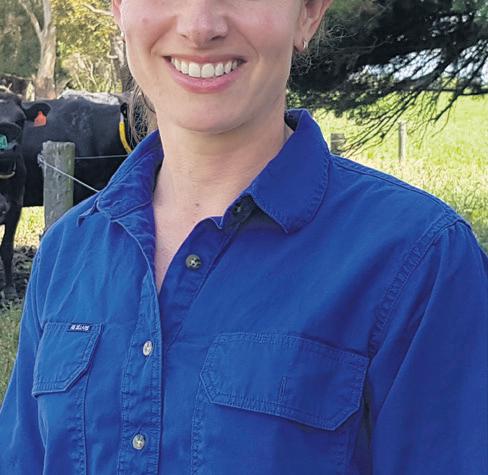
I don’t think it’s ever been easy starting out on your own. Reflecting back, Simon and I never thought we would buy a farm when we started our journey as newly married sharefarmers in 2007.
Getting there has involved hard work and financial discipline, but also getting off the farm, developing ourselves and being involved in the industry.
It’s hard to predict exactly what the next opportunity will be, but you can prepare
yourself and your business to identify and take those opportunities when they arise.
Sharing knowledge is key Chair’s message
It definitely hasn’t got any easier being young. Rising wealth inequality and climate predictions bring feelings of hopelessness and impossibility about the future.
Mobile phones and social media create a sense of connectedness that isn’t real. We’re always ‘on’ yet attention spans are short and we’re less productive than ever.
Rather than lamenting these things, it’s time for every one of us in and around the dairy industry in Gippsland to take responsibility.
We can take up the challenge to turn every negative conversation towards the things we can do, right now, to take a small step towards a better place.
We can move from being problem-oriented to solution-focused.
We can support our young service providers to become the next great consultants in Gippsland by taking the time to coach, mentor and gently provide feedback.
We can share with the next generation the opportunity that dairy has provided to us.
We can be generous with our time, knowledge and resources.
We can turn up, put our phones away, and be present.
Can we be the change we want to see?
Lauren Finger GippsDairy chair
CARBON-NEUTRAL GRAZING ONE STEP CLOSER

Gaia EnviroTech has been awarded a tender from the Victorian Government to install cutting-edge anaerobic digestion technology and deliver related services at the Ellinbank SmartFarm.
The Ellinbank SmartFarm is a commercial dairy farm currently home to a herd of 450 cows that graze pasture year-round.

Gaia EnviroTech’s chief executive officer Michael Renehan said the news was a significant milestone for the business.
“We will be able to showcase our technology to farmers, industry experts, agribusinesses, and communities as part of the research-led SmartFarm,” Michael said. Partnering with Agriculture Victoria, the Ellinbank SmartFarm is dedicated to advancing sustainable and productive farming practices through the development of innovative solutions.
As Australia's premier dairy innovation
facility, the SmartFarm plays an important role in showcasing new technology that can benefit the industry.
Michael said the SmartFarm was committed to becoming the world's first carbon neutral grazing-based dairy farm, making it an ideal partner for Gaia EnviroTech.
Once installed, the AD facility will demonstrate on-farm energy generation technology to complement other alternative energy generation, and offset grid-sourced electricity.
It will also showcase a low maintenance and convenient process to realise the value of digestate nutrients for the benefit of soils and pasture.

The installation of the Gaia AD facility will reduce the site’s carbon footprint and methane emissions from decomposing manure, leading to carbon credit revenue.
Micahel said Gaia EnviroTech AD services provided access to proven technology for dairy operators and was suitable for rapid implementation thanks to its modular and
flexible design, automation, and remote monitoring capability.
For more information, visit: https://gaia-envirotech.com/
 A Gaia EnviroTech biodigester installed at a Victorian dairy operation.
A Gaia EnviroTech biodigester installed at a Victorian dairy operation.
2 // GIPPSLAND REGION DAIRY NEWS AUSTRALIA JUNE 2023
It’s hard to predict exactly what the next opportunity will be, but
you can prepare yourself and your business to identify and take those opportunities when they arise,
GippsDairy chair Lauren Finger says
Waste transformed into soil
A NEW program to help reduce carbon emissions by converting household sewage and green waste into biochar, a carbon-rich material made from biomass, is to be trialled in Wangaratta.
Victorian Water Minister Harriet Shing launched the trial in Wangaratta, alongside North East Water and the Rural City of Wangaratta.
Gippsland Water and the Intelligent Water Network are project partners in this trial.
The trial will also inform the planned expansion of Gippsland Water’s organics recycling business at Dutson Downs, one of the largest circular economy operations in Victoria.
“Making biochar from sewage and green waste could prove to be a cost-effective way of reusing materials that would otherwise go to waste, improve environmental outcomes and provide a commodity we can sell to put further downward pressure on customer bills — we think that's worthwhile investigating,” Gippsland Water managing director Sarah Cumming said.
The ground-breaking trial will see biosolids from Wangaratta’s wastewater treatment plant mixed with the city’s green waste then processed into biochar in Melbourne.
The carbon-rich form of charcoal is used to improve soil health and boost
agricultural productivity.

This project stops these valuable resources going to landfill and provides potential for future carbon sequestration and the trade of carbon offsets.
If the Wangaratta waste streams are proven to be suitable during the trial, a local facility will be considered to process large volumes of biochar for possible use on the region’s farmland with the potential to generate jobs for the region.
North East Water, Gippsland Water and the Intelligent Water Network will invest $160,000 in the first stage of the trial with the Rural City of Wangaratta.
PRIVATE AND PUBLIC BURNS STEP UP
Hundreds of Victorians are continuing to undertake private burn-offs as fire restrictions have eased across the state.
Country Fire Authority and partner agencies will be making the most of cooler autumn conditions to conduct fuel reduction burns to lower bushfire risk for communities, while farmers and private landholders will also take the opportunity to ignite stubble burns on their properties.
Combined with weather conditions that will prevent smoke from dispersing into the upper atmosphere, it’s predicted that smoke may hang over the city and parts of
Victoria throughout these periods. CFA chief officer Jason Heffernan said although CFA and Forest Fire Management Victoria work closely with the Environment Protection Authority and Bureau of Meteorology to keep smoke impact as low as practically possible, smoke in our regional and rural areas can come from a number of sources.
“Along with the important planned burns that are conducted in our forests, parks and reserves led by FFMV and the many kilometres of road, rail and grassland burns that are led by the CFA, this time of year also sees
a large amount of smoke coming from the necessary burn-offs that our farmers and rural property holders complete,” he said.
“These are part of traditional farming practices where burning off of crop stubble is often needed to kill off weeds and return nutrients and carbon back into the soil.”
As the weather cools, smoke will also come from the many thousands of wood heaters households rely on for their autumn and winter heat source. Smoke from wood heaters will often settle in the local area from where they are burning.
“This localised smoke or smoke haze can
the best quality products start with the best quality milk
Bulla is an Australian made and owned business which has been around for over 110 years and our strategy is simple, to create a sustainable family business for generations to come.
At Bulla, we are extremely proud of the exceptional quality of the milk supplied by local Victorian farms which enables us to bring award-winning dairy products to tables across Australia.

To support Bulla’s continued growth from new products we have an opportunity for a number of farms to join the Bulla family as milk suppliers.
We invite interested suppliers to contact one of our field officers to discuss your milk supply profile and Bulla’s milk contract.
Features of Bulla Milk Supply Contracts
• Simple flat payment model for better cash flow in spring & easier annual planning
• A history of prices to our suppliers that are above market average
• No stop charge, volume charge or milk collection fee
• A guaranteed minimum price each year, no step downs
• Step up reviews during the year
To register your interest go to www.bulla.com.au/farmers
If you have any questions, please contact FieldServices@bulla.com.au
Contact our field team for information:
often be misinterpreted as coming from planned burns from a long way away, but this is not always the case,” he said.
“As the weather conditions continue to become favourable for lower intensity burning, we will look to conduct the most suitable burn-offs to ensure that our dependant native bush and grasslands are benefiting and avoid much more devastating high intensity bushfires.”
Although fire restrictions are coming to an end, Victorians are urged to continue registering their burn-offs at www.firepermits.vic.gov.au
GIPPSLAND REGION // 3 DAIRY NEWS AUSTRALIA JUNE 2023
A ground-breaking trial will see biosolids from Wangaratta’s wastewater treatment plant mixed with the city’s green waste then processed into biochar in Melbourne.
RECRUITMENT OPEN IN ALL REGIONS - Gippsland, South West, Goulburn Valley David Hester North VIC P: 0418 993 251 Marni Teal SouthWest VIC P: 0476 000 745 Paula Barbetti SouthWest VIC P: 0428 181 405 Allison Potter Gippsland VIC P: 0427 952 415 Jamie Serong Gippsland VIC P: 0477 992274
Time is right to step back
BY JEANETTE SEVERS
AFTER 41 years and working in several states, including as an owner, sharefarmer and manager, James Dillon is retiring from milking cows.
His decision to retire from running his own business is based on a long-term plan, as well as his physical ability to keep milking cows.
His only regret is giving up his registered Ayrshire herd, which includes a line-up of sashed champion cows and heifers.
James has managed dairies at Katherine in the Northern Territory and on King Island, each agribusiness milking more than 1000 cows.
Until recently he owned an irrigated dairy farm in northern Victoria, in partnership with New Zealand friends, Ann and Brian Thomas.
“We owned a fair bit of irrigation water, but unless you had consistent good seasons, it was a battle to make a living on that farm,” James said.
The farm was sold last year and the partnership recently wound up.
James has twice been a sharefarmer in Gippsland — the first time for nine years in West Gippsland and the last four years at Ruby in South Gippsland.
He was initially looking for a lease opportunity in South Gippsland to round out his last years as a sole operator before retirement.
“I wanted to come back to South Gippsland, but there weren’t any farms available to lease.


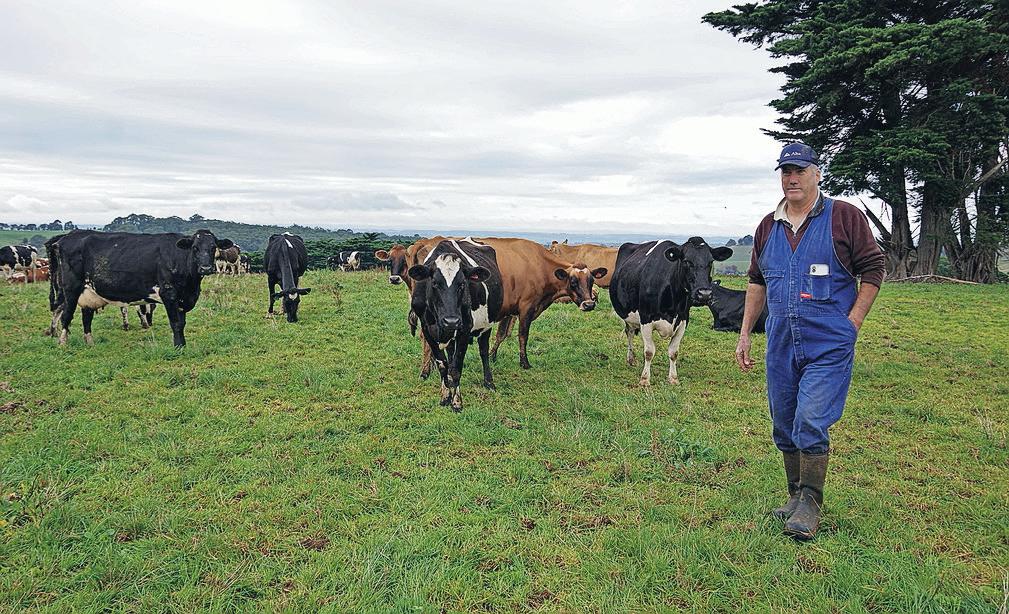

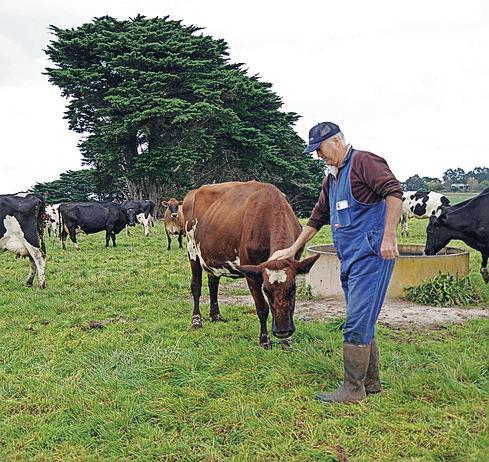
“This share opportunity came about and I took it.”
He leased out his northern Victorian farm.
“Also, I didn’t know how many more years
I wanted to farm, so sharefarming was a good option for continuing to farm,” James said.
“That way, when I’ve decided I’ve had enough I can easily stop.
“I started dairy farming the week before I turned 18.
“I’ve been a dairy farmer for more than 41 years.
“The only time I didn’t work full-time was during the two years I spent at ag college.
“I love milking cows but my body needs a break.”
Retirement is also part of his exit plan to leave full-time farming, which was supposed to occur in 2022; but James extended his sharefarming agreement for a year. He will finish at the end of June.
“I’m retiring from dairy farming and owning my own dairy,” he said.
“I’m taking a break for a few months and I’ll decide after then what I want to do.”
That break begins with the close of the financial year, but in the meantime James is selling his herd and machinery.
He owns a mixed herd, with some Ayrshires under the Parkville stud prefix.
James’ Ayrshire stud herd includes the reigning International Dairy Week senior champion cow and a former junior champion heifer.
The autumn calving cows and the registered Ayrshire herd are selling on June 2.
A follow up sale for the spring calving cows is planned for June 26.
The sale includes cattle from two-month-old calves to his older milking cows, and everything in between.
“There’s 115 head in the first sale,” James said.
“Then there are 60-plus yearling heifers, and 25 spring calving heifers.”
The balance of his machinery — tractor, slasher and quad bike — will also be put up for sale.
James said after he has a rest and does some travel, he will probably look for work on dairy farms — but not milking cows because of the physical toll.
“I’ve had a good career in the dairy industry,” he said.
“Maybe in ‘retirement’ I’ll travel and work along the way.
“I like to travel. The caravan is packed and ready to go.
“I can do a lot of farm work, but my body can’t milk cows any more.”
Among his experiences in the dairy industry, James participated in a Dairy Australia group tour to the United States, Canada, Brazil, Argentina and Uruguay.
“In North America I got to see maize production and feedlot dairies,” he said.
“In Brazil and Argentina, I toured pasture-based dairy systems and some more feedlot dairies.
“It’s good to see how other countries work and understand we all have similar problems — labour shortages, unpredictable seasons.
“It and other experiences have reinforced for me that we’re in a good country to farm.”
He’s participated in study tours related to pasture, feeding, milking and management of cows.
“In Australia we’re very fortunate with our payment structures compared to other countries,” James said.
“We know what we can earn 12 months in advance. It helps us plan.”
James Dillon has always enjoyed showing cattle and includes a registered Ayrshire herd in his milking herd for that purpose.
James will miss showing his beloved Ayrshire cows.
James is looking for new horizons, including some travel, but believes he’ll also look for work along the route.
4 // GIPPSLAND REGION DAIRY NEWS AUSTRALIA JUNE 2023
James Dillon is retiring after working full-time for 41 years as a dairy farmer, and selling his machinery and livestock. The mixed herd will be sold in June.
Pipe project generates jobs
THE ECONOMY, the community, as well as farmers are benefiting from Southern Rural Water’s Newry pipeline project in the Macalister Irrigation District.
There are 25 people directly employed on the Newry Pipeline project and 90 per cent of those people live locally.
The pipeline is being built by Southern Rural Water’s construction partner Jaydo as part of phase two of the $159.7 million Macalister Irrigation District modernisation program.
Southern Rural Water managing director Cameron FitzGerald said Southern Rural Water’s once-in-a-generation investment in modernising infrastructure would boost the economy.


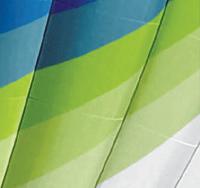

“We are delighted to be employing local people and using local suppliers on our project,” Mr FitzGerald said.
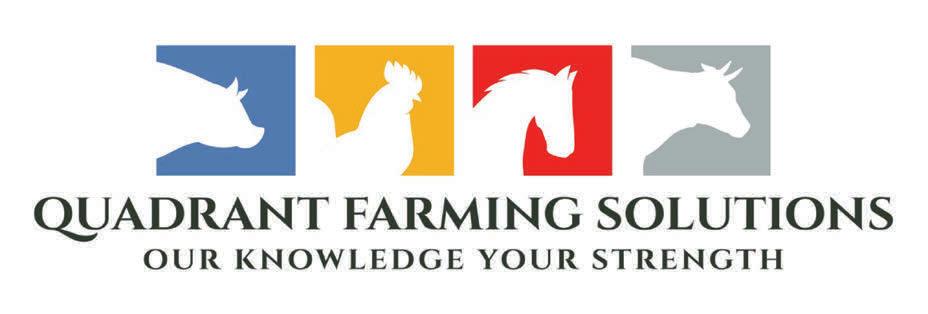





“There are also 35 subcontractors employed by the project and 90 per cent of them are local businesses.”
Without Effort
Maffra resident Julie Foat is also benefiting from the Newry pipeline and is proud to work for a project that will help farmers be more resilient to the impacts of climate change.
“My family is directly involved in agriculture as beef producers and this pipeline is essential to future proof farms like ours,” Ms Foat said.
“I have a professional background in health, safety and compliance and love applying these skills on a job that’s going to leave such a positive legacy in my community.”
ow health natural systems to elevate during transition sting grown pasture, hay and silage



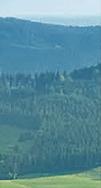
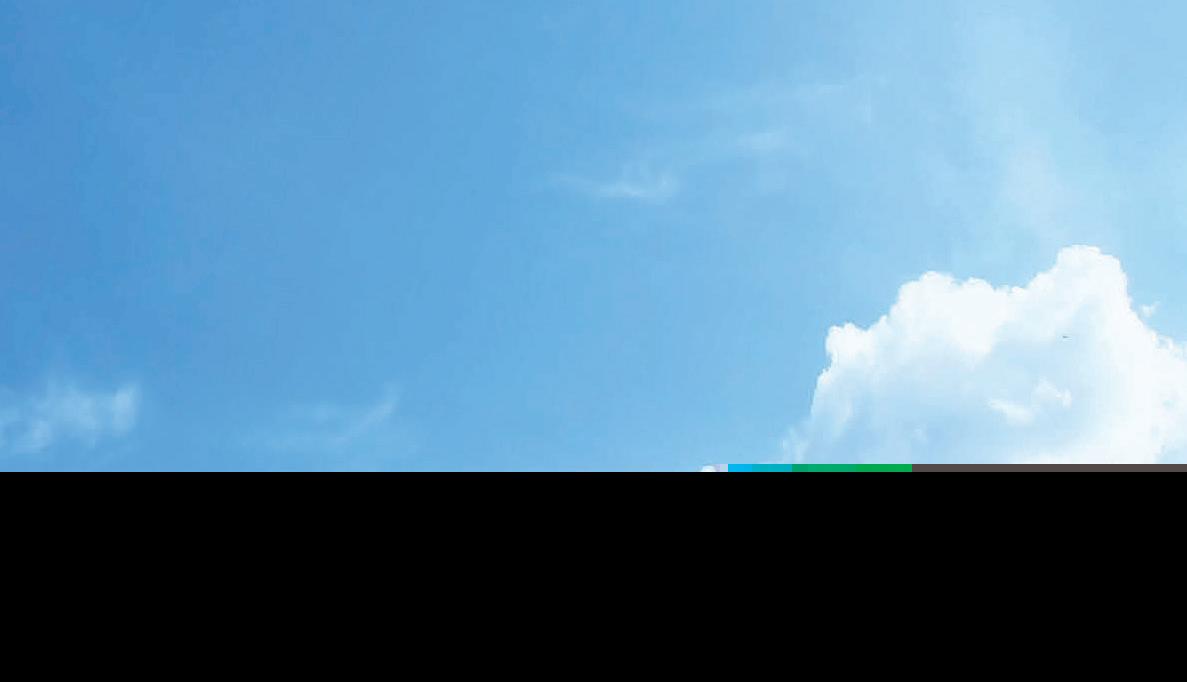
Jaydo’s Kayla Aucote, a barista turned
labourer, said the project helped her switch industries and begin her Certificate III in Civil Construction.
“I’ve always wanted to work in construction. Jaydo has taken me on as an apprentice for this project and is supporting my education with formal training and on-the-job learning,” Ms Aucote said.
“There’s so much infrastructure investment happening in Victoria. I feel this project is setting me up to make the most of the career opportunities in the region and across the state.”
COMBAT MILK FEVER eed ate
Melbourne-based project engineer Jaydon McLeod proactively asked to live and work in the region during the week because he’s passionate about supporting the community.

“I’ve got to know a lot of locals and it’s rewarding to know they support the work I’m doing,” Mr McLeod said.
“This project is so important to the economic and social fabric of the community. I know most of the team value doing rewarding work that’s on their doorstep.”


Mr FitzGerald said irrigation water was critical for food production and entire regions were supported by this infrastructure.
“This once-in-a-generation investment in modernising infrastructure will support the region’s agricultural businesses to become more efficient, productive and resilient,” Mr FitzGerald said.
“We are proud to be investing in local skills and people who are directly employed on this project that will leave the community with a positive lasting legacy.”
• X-Zelit allows springers to calve on homegrown feed such as directly grazed pasture, ryegrass silage and pasture hay
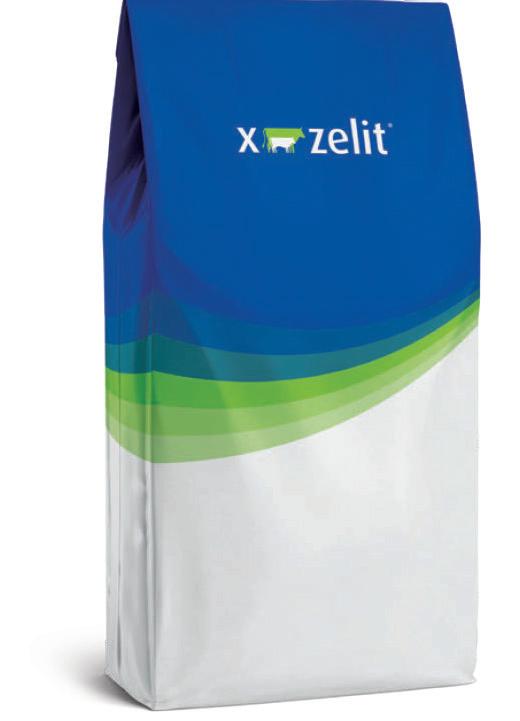



• Add it to your existing concentrate feed used in the dair y or tip it into your mixer wagon







• Activates her natural systems to elevate blood calcium during transition
sales:






GIPPSLAND REGION // 5 DAIRY NEWS AUSTRALIA JUNE 2023
Scott De Haan, Cory Wilshire, Kayla Aucote and John Carlin are all working on the Newry pipeline project.
$$$ RETURN ABOUT X-ZELIT better with X-Zelit.®
For technical support and
Expect Better Redwood Agsolutions Andrew Wood 0409 858 464 andrew@redwood-ag.com.au
Beefy questions on menu at
BY JEANETTE SEVERS
PRODUCING BEEF-DAIRY meat was the focus of an industry breakfast hosted by Farm World field days, held at Lardner Park on March 24.
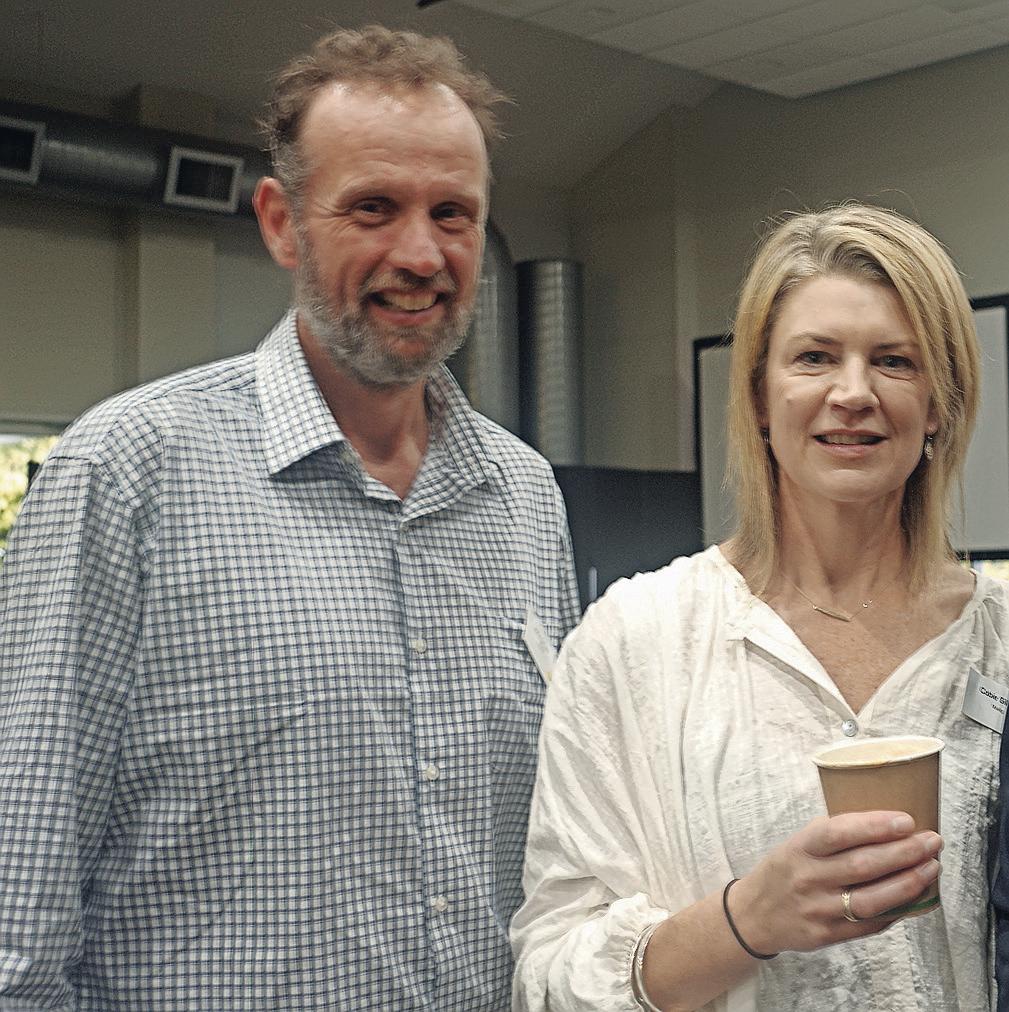
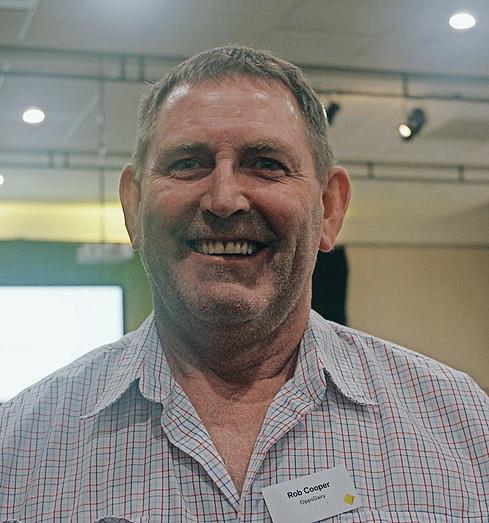
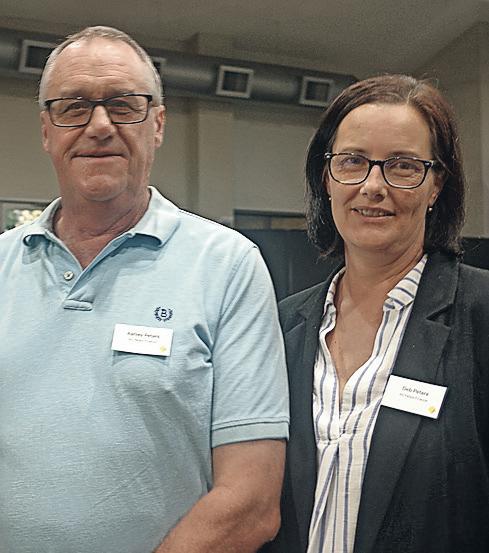

Dairy farmers are being pushed to add beef-dairy meat production to their business models, as a revenue diversification stream and in response to global animal welfare concerns about slaughtering calves.
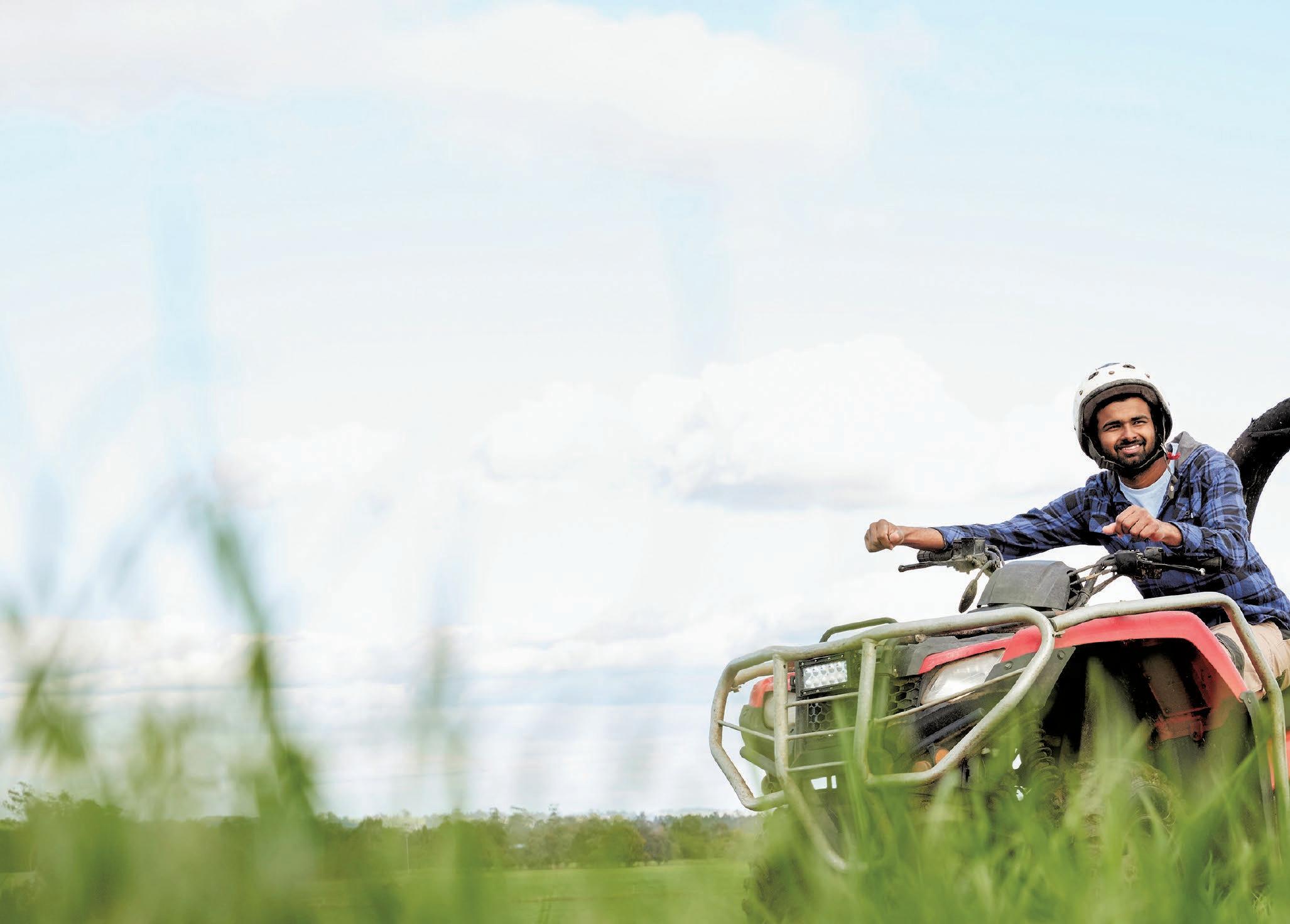
But it begs questions, and some of those were discussed at the industry breakfast at Farm
Supporting employment and people development
Looking for people to work on your farm?
Promote your job vacancies for free on dairyjobsmatter.com.au to connect with people who are looking for jobs on dairy farms. To list your job vacancies and get support with other employment needs visit dairyaustralia.com.au/people or contact Jessica Russell, Regional Extension Officer for Workforce Attraction at GippsDairy, on 0427 275 654 or jessica.russell@gippsdairy.com.au.
Sandra Pearce from Grendan Park.
Ashley and Deb Peters from Leongatha.
NSW Dairy Action Plan Implementation Panel chair Rob Cooper from Tamworth.
6 // GIPPSLAND REGION DAIRY NEWS AUSTRALIA JUNE 2023
John and Cobie Giliam from Nilma.
at

Farm World eld days
World, and hosted by the Commonwealth Bank.
On the speakers panel at Farm World were entrepreneur Cameron Renshaw of Fulton Market Group, Sarah Bolton of HW Greenham & Sons, Brad Gilchrist from Semex Canada, and Commonwealth Bank of Australia national agribusiness director Carmel Onions.

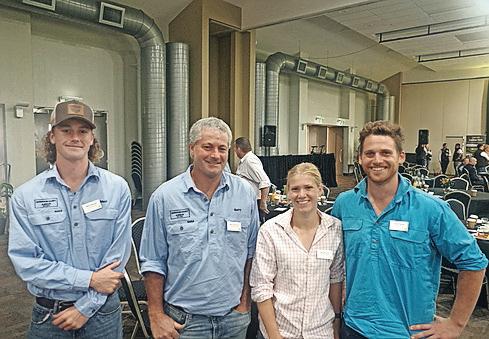
The panel was facilitated by CBA’s regional and agribusiness banking executive manager Kate Wallis.
An analysis of this topic — which has been presented at a number of conferences in recent months — will be published in a future issue of Dairy News Australia.

menu
Matt and Barry Heywood from Hallora withShaye Symes and Jacob Patullo from Lang Lang.
Lilia and Rosalie Coleman from Fortuna, Andrew Holman from Poowong and Fiona Corrigan from the Commonwealth Bank.
GIPPSLAND REGION // 7 DAIRY NEWS AUSTRALIA JUNE 2023
Discussing how to grow beef-dairy market options are panel members Kate Wallis, Carmel Onions, Cameron Renshaw, Sarah Bolton and Brad Gilchrist.






DAIRY NEWS AUSTRALIA JUNE 2023 RID24750 To learn how to feed smarter, contact your local Ridley team of Dairy specialists Contact our dairy expert today: Gippsland (Pakenham & Maffra) 1300 531 833 Pakrum.Sales@ridley.com.au www.ridley.com.au 2 1 0 3 4 5 6 7 8 9 10 11 12 3 WEEKS PRIOR TO CALVING WEEKS CALVING LACTATION RIDLEY SPECIALISED FEED AGE Birth Heifer Lactation Calving LIFE STAGES CALF MILK REPLACER CALF MAXIMISER MIX CALF REARER PELLETS HEIFER DEVELOPER PELLETS LEAD UP DAIRY PELLETS PERFORMANCE PELLETS CONCENTRATES GRAIN MIXES FEED SMART LIFECYCLE FEEDING FOR HIGH PERFORMANCE DAIRY COWS
ALL

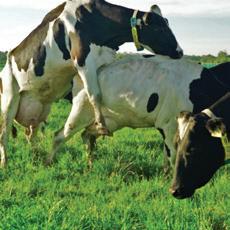




ABOARD FOR WINTER FAIR PAGE 6
TOP OF THE CLASS


JUNE, 2023 ISSUE 152 // www.dairynewsaustralia.com.au BORN TO CHAT ABOUT DAIRY PAGE 8
The recent Holstein Australia National Judging School held at Victor Harbour in South Australia, has been deemed a great success. More, PAGE 4 STAY IN CONTROL THIS SEASON Stay in control with CowScout collars: GEA.com/australia | 03 8877 99999
Detect metabolic disorders early Identify non-cyclers and slipped cows Improve in-calf rates Work with user-friendly software GIPPSLAND EDITION 8-page regional section inside
Healthier cows are proven to stay in your herd for longer. And thanks to CowScout heat and health collars, you can act faster than ever before if there are potential health problems.




































 A Gaia EnviroTech biodigester installed at a Victorian dairy operation.
A Gaia EnviroTech biodigester installed at a Victorian dairy operation.



























































